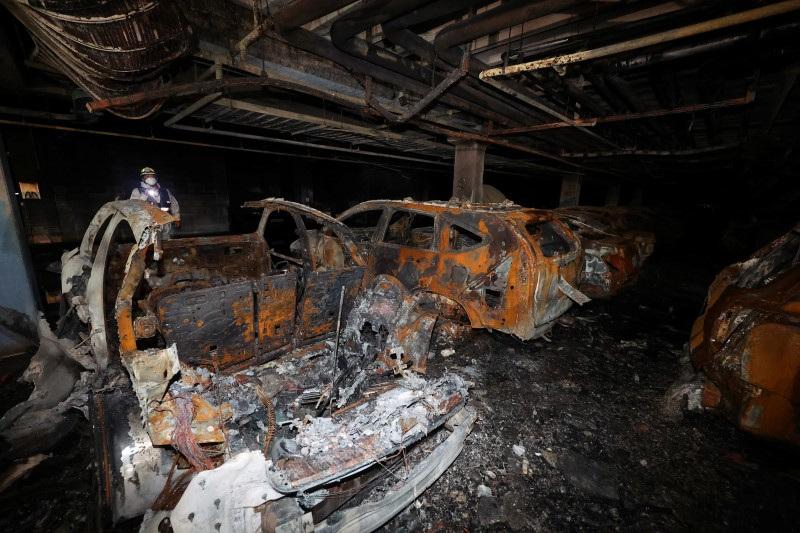South Korea will hold an emergency meeting this week to discuss safety concerns over electric vehicles, in the wake of a massive blaze in an underground parking garage, caused by an electric vehicle (EV) that caught fire, the government said Monday.
At the meeting on Tuesday, vice ministers from various government agencies are expected to share their measures to prevent electric car fires. South Korea’s government is set to announce new rules on EVs in the next few weeks.





